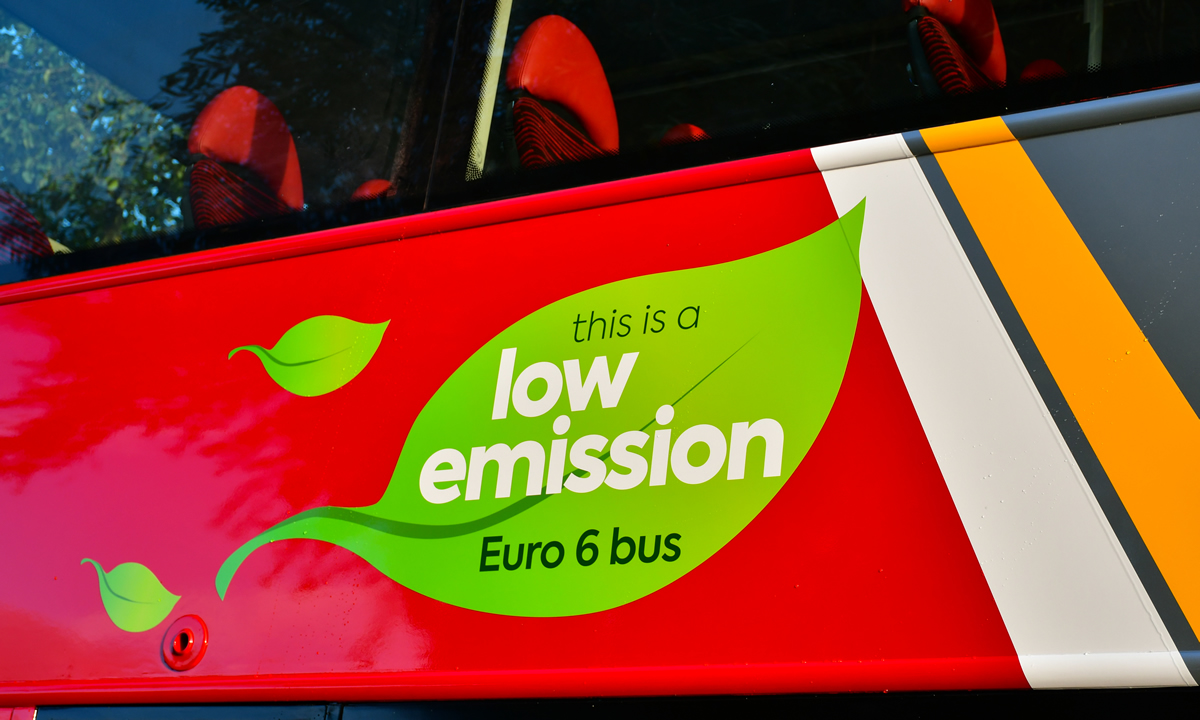UK government paused funding, launches investigation following concerns over the effectiveness of technology
The UK government suspended new funding for selective catalytic reduction (SCR) exhaust retrofits due to concerns over the technology’s effectiveness in reducing NOx emissions, according to a recent letter sent by the Department for Transport (DfT) to Birmingham City Council.
The letter was revealed to routeone following an FOI request into the effectiveness
of SCR retrofit solutions approved under the Clean Vehicle Retrofit Accreditation Scheme (CVRAS).
Cosigned by DfT Directors of Future Transport Systems and Environment Claire Wren and Henry Shennan, it explains that the decision to pause funding was made after in-service monitoring indicated a “considerable variability in performance” of retrofitted buses. This inconsistency led to the decision to undertake “a further focused research programme
to quickly investigate the causes of this poor performance and the scope for improving performance,” with findings expected in autumn.
Problems first emerged in Scotland
The government initiated real-world performance monitoring of retrofitted buses after observing mixed results in Scotland. This came under the NO2 Programme, aimed at understanding the effectiveness of government-funded SCR retrofits.
However, these studies were accelerated when retrofitted buses in Scotland suggested lower than expected real-world NOx emission reduction impacts.
A government spokesperson says: “The government has been looking into the performance of retrofitted buses in real-world conditions following some mixed results in Scotland. The NO2 programme had planned to understand the effectiveness of [government]-funded retrofits.
“Evidence has shown variability in the performance of the retrofit technology and the government has taken a decision to pause further funding while further investigation is carried out. it would be premature to make a final decision on future funding ahead of the results of that investigation.
“We work closely with local councils to help them improve air quality, including using technology to help improve bus emissions. We have paused the rollout of bus retrofit technology and are conducting further research to understand the technology and how best it could be improved.”
The government is consulting with retrofit suppliers to identify possible causes for the observed performance variation and potential solutions. Representatives from the retrofit segment, meanwhile, have questioned the need for the suspension of funding and have criticised the validity of the testing.
Testing uses PEMS campaign
DfT reveals that the retrofit technology’s performance is being assessed through a science programme employing remote sensing monitoring and Portable Emission Measurement System (PEMS) test equipment.
A remote sensing monitoring campaign took place across Manchester, Newcastle, Sheffield, and Rotherham between September and December 2022. Real-world PEMS tests were conducted in Sheffield, Bath, Romford, and Birmingham, along with track tests at UTAC Millbrook.
Despite the pause in funding for English retrofits, the development seems to have had little impact on Scotland. Transport Scotland has revealed to routeone that it is continuing to finance retrofit through the Bus Emission Abatement Retrofit fund. A representative contradicts DfT’s findings by stating: “We have retrofitted buses in Glasgow – and in turn, this has improved the NOx levels in advance of wider enforcement of Glasgow’s Low Emission Zone.” Clean Air Zone (CAZ) compliance status for buses already retrofitted with SCR will remain unchanged during the investigation. DfT, however, has recommended against making any further retrofit purchases until the research has concluded.
The Association of Local Bus Company Managers has revealed it is aware of the issue and is “pleased to note that vehicles already converted are considered to remain compliant,” according to a spokesperson.
“However, this creates huge levels of uncertainty and in the short to medium term, retrofits are the only reasonably cost-effective way of achieving Euro VI emission standards, especially for SMEs. Such enhancements could grind to a halt, even where funding is available,” they add.
Confederation of Passenger Transport (CPT) Director of Policy Alison Edwards adds: “The bus sector is supporting the Department for Environment, Food and Rural Affairs (DEFRA) and its experts with a technical review into the performance of retrofitted buses to meet Euro VI emission standards.
“Most large bus operators have zero-emission targets in place which means that, from 2025, we predict over two thirds of all new bus purchases in England will be zero-emission, provided sufficient government funding continues to be available.”
Zemo Partnership, the public-private partnership that helped develop CVRAS, chose to reserve comment pending the outcome of the ongoing investigation. “At this point,
we don’t wish to pre-empt that investigation or speculate on its outcome,” a spokesperson says.
routeone has approached Newcastle-upon-Tyne City Council, Manchester City Council and DEFRA for comment. All refused to disclose further information. The Greater Manchester Combined Authority has since cited the investigation into retrofit efficiency as a reason for further delaying the introduction of the conurbation’s controversial CAZ.
Supplier and operator engagement coming
Ahead of the study’s findings, DfT has planned to convene a meeting where local authorities can raise queries and discuss potential impacts and mitigation plans.
The news will likely draw attention from operators and retrofit suppliers as they are set to be engaged in further studies to understand and resolve the performance issues.



























